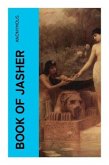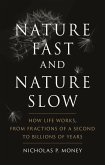The Book of Jasher, a fascinating work of ancient literature, presents a parallel narrative to the biblical stories found in the Old Testament. Often referred to as a book of the righteous or the upright, its prose blends narrative and poetic forms, illustrating significant events and figures from Genesis through the early periods of Israelite history. The text is marked by its unique perspective on well-known biblical tales, exploring themes of divine justice, heroic deeds, and the human condition, all while delving into the cultural and theological milieu of the time. The authorship of the Book of Jasher remains shrouded in mystery, with origins attributed to the lost works of the ancient Israelite historian Jasher. Scholars speculate that the compilation of these texts may have been influenced by the Jewish exilic experience and the desire to preserve a sense of identity amidst displacement. This context suggests a rich interplay between history and legend, fostering a sense of continuity for the Israelites through generations. Readers interested in biblical literature, history, or theology will find the Book of Jasher an invaluable resource, illuminating the narratives that shape Judeo-Christian thought. Its profound insights and captivating storytelling offer an enriching experience that invites reflection on the enduring themes of faith and morality.
Bitte wählen Sie Ihr Anliegen aus.
Rechnungen
Retourenschein anfordern
Bestellstatus
Storno








